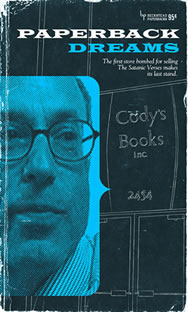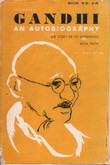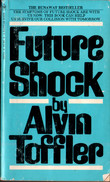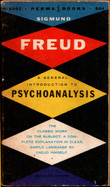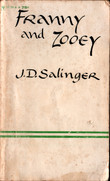Paperback Dreams
A One Hour Public Television Documentary About Independent Booksellers and the People That Love Them.
The Bookstores
Cody’s Books
When Andy Ross bought Cody’s in 1977, it was already a living legend among bookstores. Ross recalls buying the store:
I was 30 years old. I believed at that time that Cody’s was the greatest bookstore in the United States, although I couldn’t exactly tell you why. I loved the wide range of literary paperbacks. I loved being on Telegraph Avenue, which was the heart and soul of the 60s counterculture and radical political currents. I loved the smell. I loved the informality and the democratic spirit of Cody’s. This was no carriage trade bookstore. Our customers were a band of brothers involved in the world of ideas.
Founded by Fred and Pat Cody in 1956 in a tiny storefront north of the UC Berkeley campus, Cody’s was bound for bigger and better things. In 1965, they moved the store to its flagship Telegraph Avenue location, which they sold to Andy Ross in 1977. After acquiring Cody’s, Andy added 15,000 square feet to the store, and in 1997, opened a second Cody’s in the heart of Berkeley’s bustling Fourth Street shops.
Cody’s was a pioneer in bookselling, bringing the paperback revolution to Berkeley, fighting censorship, and providing a safe harbor from teargas for student activists during the Free Speech Movement and throughout the 1960s and 70s.
In 1989, Cody’s was the first store to be firebombed for selling The Satanic Verses. The fire did little damage, but during the clean up, an unexploded pipe bomb was found rolling around the store. Had it gone off, it would have killed everyone in the building. Waldenbooks and the other big chains of the day were pulling Rushdie’s books from the shelves, in fear for their lives. Andy called a store meeting, and asked the staff what they wanted to do. They unanimously voted to keep selling the book.
In 2005, Andy Ross made a bold move. Even though the existing stores were failing to make a profit, instead of cutting back, Andy opened a new store the size of a supermarket in Union Square—San Francisco’s prime shopping district. To finance the store, he staked his house, the original Cody’s building, and his life savings.
Meanwhile, decreasing sales, changing reading habits, and neighborhood difficulties led to the closure of the Telegraph Avenue flagship store in July 2006. Then, in 2007, the Stockton Street store followed suit.
The remaining Cody’s store is still run by Andy Ross and his wife, Leslie Berkler, but it owned by Yohan, Inc., a Japanese book distributor and owner of several chains in Japan.
Andy Ross has been president of the Northern California Booksellers Association and a board member of the American Booksellers Association. His has been an outspoken activist for independent bookstores and independent businesses.
For more information, go to Cody’s Books.
Kepler’s Books and Magazines
Roy Kepler, a committed pacifist who spent World War II in a labor camp for conscientious objectors, opened Kepler’s Books near Stanford University. He had the lofty goal of carrying every paperback book in print (about 5,000 titles) and the simple purpose of feeding his family without compromising his values.
As controversy over the Vietnam War grew, Roy Kepler, who preached nonviolence decades before it was fashionable, endured vandalism and death threats fo his politics. He repeatedly took his family into hiding, but never closed the doors of his shop, where controversial works filled the store windows. His prominence in the peace movement caught eye of Joan Baez, who made Kepler her manager. The Grateful Dead first met at Kepler’s, and it was the first stop on Ken Kesey’s acid-tinged road trip that was later dubbed The Electric Kool-Aid Acid Test.
Many small independents are long gone, and now the giants are starting to stumble. After 50 years in business, Kepler’s closed its doors last summer. Competition from the internet and rising costs finally forced Roy’s son Clark, who took over in 1979, to let go of his family’s legacy. His loyal customers mourned, and then they raged. “Save Kepler’s” became a rallying cry, and after 40 days, in a scene straight out of IT’S A WONDERFUL LIFE, the store reopened. A sizeable sum of money was raised to pay down the store’s debts. One of the benefactors who made a large personal donation also happens to sit on Amazon.com‘s Board of Directors. He believes in the internet, but he also can’t live without his local bookstore.
For more information, go to Kepler’s.
Also featured in PAPERBACK DREAMS:
Michael Powell
From humble storefront beginnings in 1971 on a derelict corner of northwest Portland, Oregon, Powell’s Books has grown into one of the world’s great bookstores, with seven locations in the Portland metropolitan area, and one of the book world’s most successful dot-coms (Powell’s Books).
Powell’s went online in 1994, and experienced immediate success. Within two years, Powell’s entire inventory was listed on the web.
Morgan Entrekin
President and publisher of Grove/Atlantic Entrekin is a graduate of Montgomery Bell Academy, Stanford University and the Radcliffe Publishing Course. He began his career at Delacorte Press. In 1982 he moved to Simon & Schuster. In 1984, he started his own imprint at Atlantic Monthly Press. In 1993 he merged this company with Grove Press to create Grove/Atlantic Inc.
Jamie Raab
Publisher, Warner Books, now Grand Central
Malcolm Margolin
Malcolm Margolin runs Heyday Books, an independent publisher started in 1974 that specializes in California literature, history and natural history, ethnic studies, and art. Margolin was a close friend of Fred Cody’s.
News & Updates
For all you booksellers on your way to BEA next month, please join us for a special advance screening of Paperback Dreams!
For more about the film, visit the links on the bookmark, or email
